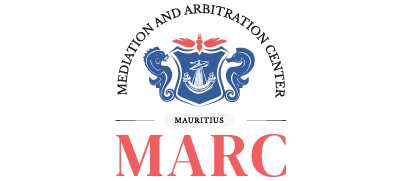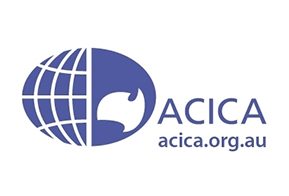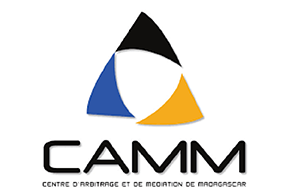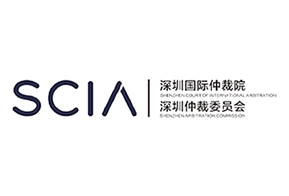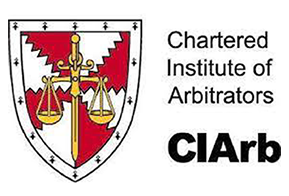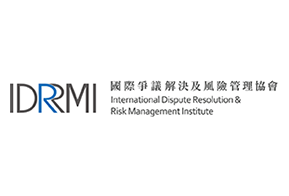MARC endeavours to provide world class Alternative Dispute Resolution services, with arbitration and mediation rules based on international standards. Choosing MARC is choosing quality, efficiency and cost-effectiveness for dispute resolution.
Efficiency and flexibility find full expression in MARC Arbitration Rules.
Rapidity of proceedings
The MARC Arbitration Rules favors quick and efficient proceedings: in addition to the short time limits prescribed by the Rules, The arbitrators are constantly encouraged to proceed in a timely manner. The intentional absence of formalism in the procedure makes it possible for the preliminary procedures to be hastened.
Place of arbitration, hearings and meetings
In MARC Arbitrations, parties are free to choose another venue for their arbitration after prior consultation with the Permanent Secretariat. Video conferencing facilities may also be arranged if the arbitral tribunal and parties wish to conduct meetings and hearings from different locations.
Governing law
Parties can agree on the applicable law by choosing the law of any state, or transnational legal principles such as the general principles of international commercial law. They could alternatively empower the arbitral tribunal to decide the case as amiable compositeur.
Language
Arbitrations can take place in any language or even in several languages simultaneously (although the latter can be inconvenient and cause additional costs).The language of arbitration is chosen by the parties. By default, it is chosen by the arbitral tribunal, taking into consideration the characteristics of the dispute.
Case parameters
It is up to the parties to spell out the claims and how the case will be handled. For example, parties may prefer the case to be decided solely on the basis of documents or witnesses to be called.
Parties can also confer upon the arbitrator powers of amiable compositeur (Article 18.3). Furthermore, arbitrators are given a broad discretion to tailor the arbitration to the needs of the disputes submitted to them, by adapting the procedure to the specific issues and difficulties of the case
If the parties agree on appropriate procedures, arbitration can be faster and cheaper than court litigation, especially considering that arbitration is final in the sense that there is generally no appeal from an arbitral award, except in limited cases.
The MARC Permanent Secretariat is committed to assisting parties and arbitral tribunals in ensuring that disputes are resolved as quickly and as economically as possible. The MARC Permanent Secretariat closely monitors time limits and arbitrators’ performance.
The arbitration costs, including administrative costs and arbitrator's fees, can be calculated based on Appendix 1, 2, and 3, respectively. You can obtain an estimate of the administrative costs and arbitrator’s cost by using our fee calculator.
Using the cost scales offers two key advantages. Firstly, it provides parties with upfront knowledge of the expected arbitration costs. Secondly, it ensures that the cost of resolving a dispute is proportionate to its economic value.
The Permanent Secretariat’s work is entirely confidential. MARC does not disclose any information about its cases except to those involved.
The arbitration process is also private, unlike domestic court proceedings which are usually open to the public.
Parties are also free to make their arbitration proceedings confidential, so that the parties cannot disclose documents, submissions and awards. An obligation of confidentiality is considered to be implied into an arbitration agreement under some laws. Arbitral tribunals may also make orders concerning confidentiality and may take measures for protecting trade secrets and confidential information.
At the end of his mission, the arbitrator gives a decision called an arbitral award, the effects of which are the same as that of a judgment rendered by a judicial authority. It is binding on the parties, in the sense that parties must abide by it. It is subject to compulsory execution once it has been validated by the Judge in Chambers, through the procedure of exequatur.
In an international arbitration, the 1958 New York Convention on the Recognition and Enforcement of Foreign Arbitral Awards, which has been adopted by more than 160 countries, including Mauritius facilitates the enforcement of arbitral awards.
While maintaining strict neutrality, the staff of the MARC Permanent Secretariat are always available to answer questions from parties, their counsel, arbitrators, and any other actors involved in a MARC Arbitration.
When drafting a contract for example, parties can easily contact the Secretariat with a question about MARC Arbitration clauses. Secretariat staffs are reachable by email on [email protected] or alternatively by phone on +230 2034830
During an arbitration, parties and arbitrators are in close contact with the team of the Secretariat that has been assigned to manage their case.
The MARC Rules of Arbitration reserves the parties’ rights to undertake judicial proceedings for interim and conservatory measures. It provides that recourse to such proceedings by any party shall not constitute a breach of the agreement to submit to arbitration or be construed as causing any prejudice to the powers of the arbitral tribunal.(Article 23)
MARC and the MCCI pioneered institutional arbitration in Mauritius with the setting up of the MCCI Permanent Court of Arbitration in 1996, and has constantly striven, through representations, sensitization campaigns, training to spearhead developments in the field of arbitration and ADR in Mauritius and the region. Through its years of existence, MARC has administered a significant number of both international and domestic cases, ranging from less than 1 million MUR to 680,000 million MUR.
MARC is an autonomous, non-governmental Arbitral Institution and is neutral and independent.
MARC Arbitrators are required to sign a Declaration of Independence and Impartiality prior to engaging in any arbitration to ensure their neutrality.
As the former ADR arm of the MCCI, MARC has a regional and international outreach unmatched by any other institution. Its network includes 9000 Chambers of Commerce and Industry across the world as well as the most important ADR centers, namely the American Arbitration Association, the Centre de Mediation et d’Arbitrage de Paris, the Australian Center for International Commercial Arbitration, the Indian Council of Arbitration and the Arbitration Foundation of South Africa.
It participates actively in the national and regional development of ADR methods in collaboration with regional organisations such as the Indian Ocean Rim Association and the Union of Chambers of Commerce and Industry of the Indian Ocean Islands. Through its Advisory Board, it also strives for excellence in the field of ADR through continuous consultation work with the legal and business community of Mauritius and of foreign country partners.
Efficient and Flexible
Efficiency and flexibility find full expression in MARC Arbitration Rules.
Rapidity of proceedings
The MARC Arbitration Rules favors quick and efficient proceedings: in addition to the short time limits prescribed by the Rules, the arbitrators are constantly encouraged to proceed in a timely manner. The intentional absence of formalism in the procedure makes it possible for the preliminary procedures to be hastened.
Place of arbitration, hearings and meetings
MARC Arbitrations are held by default in Mauritius but parties are free to choose another venue for their arbitration after prior consultation with the Permanent Secretariat. Video conferencing facilities may also be arranged if the arbitral tribunal and parties wish to conduct meetings and hearings from different locations.
Governing law
Parties can agree on the applicable law by choosing the law of any state, or transnational legal principles such as the general principles of international commercial law. They could alternatively empower the arbitral tribunal to decide the case as amiable compositeur.
Language
Arbitrations can take place in any language or even in several languages simultaneously (although the latter can be inconvenient and cause additional costs).The language of arbitration is chosen by the parties. By default, it is chosen by the arbitral tribunal, taking into consideration the characteristics of the dispute.
Case parameters
It is up to the parties to spell out the claims and how the case will be handled. For example, parties may prefer the case to be decided solely on the basis of documents or witnesses to be called.
Parties can also confer upon the arbitrator powers of amiable compositeur (article 22). Furthermore, arbitrators are given a broad discretion to tailor the arbitration to the needs of the disputes submitted to them, by adapting the procedure to the specific issues and difficulties of the case.
Controlling time and party generated costs
If the parties agree on appropriate procedures, arbitration can be faster and cheaper than court litigation, especially considering that arbitration is final in the sense that there is generally no appeal from an arbitral award, except in limited cases.
The MARC Permanent Secretariat is committed to assisting parties and arbitral tribunals in ensuring that disputes are resolved as quickly and as economically as possible. The MARC Permanent Secretariat closely monitors time limits and arbitrators’ performance.
Predictable administrative costs and arbitrators' fees
The arbitration’s costs are fixed using a costs scale published in the MARC Arbitration and Mediation Guide (link to the Guide), and which refers primarily to the amount in dispute. As the amount in dispute increases, the percentage of costs decreases, until the cap is reached. Using the cost scales has two main advantages. First, it means that the parties know up front how much the arbitration is likely to cost. Second, it means that the cost of resolving a dispute will be appropriately proportionate to its economic value.
Confidentiality
The Permanent Secretariat’s work is entirely confidential. MARC does not disclose any information about its cases except to those involved.
The arbitration process is also private, unlike domestic court proceedings which are usually open to the public.
Parties are also free to make their arbitration proceedings confidential, so that the parties cannot disclose documents, submissions and awards. An obligation of confidentiality is considered to be implied into an arbitration agreement under some laws. Arbitral tribunals may also make orders concerning confidentiality and may take measures for protecting trade secrets and confidential information.
A Jurisdictional decision which is definitive and binding
At the end of his mission, the arbitrator gives a decision called an arbitral award, the effects of which are the same as that of a judgment rendered by a judicial authority. It is binding on the parties, in the sense that parties must abide by it. It is subject to compulsory execution once it has been validated by the Judge in Chambers, through the procedure of exequatur.
In an international arbitration, the 1958 New York Convention on the Recognition and Enforcement of Foreign Arbitral Awards, which has been adopted by more than 145 countries, including Mauritius facilitates the enforcement of arbitral awards.
Accessible
While maintaining strict neutrality, the staff of the MARC Permanent Secretariat are always available to answer questions from parties, their counsel, arbitrators, and any other actors involved in a MARC Arbitration.
When drafting a contract for example, parties can easily contact the Secretariat with a question about MARC Arbitration clauses. Secretariat staff are reachable by phone or email.
During an arbitration, parties and arbitrators are in close contact with the team of the Secretariat that has been assigned to manage their case.
Interim measures of protection
The MARC Rules of Arbitration reserves the parties’ rights to undertake judicial proceedings for interim and conservatory measures. It provides that recourse to such proceedings by any party shall not constitute a breach of the agreement to submit to arbitration or be construed as causing any prejudice to the powers of the arbitral tribunal.
Reputable
MARC and the MCCI pioneered institutional arbitration in Mauritius with the setting up of the MCCI Permanent Court of Arbitration in 1996, and has constantly striven, through representations, sensitization campaigns, training to spearhead developments in the field of arbitration and ADR in Mauritius and the region. Through its years of existence, MARC has administered a significant number of both international and domestic cases, ranging from less than 1 million MUR to 650,000 million MUR.
Neutral
MARC is an autonomous, non-governmental Arbitral Institution and is neutral and independent.
MARC Arbitrators are required to sign a Declaration of Independence and Impartiality prior to engaging in any arbitration to ensure their neutrality.
Regional and International Reach
As the former ADR arm of the MCCI, MARC has a regional and international outreach unmatched by any other institution. Its network includes 9000 Chambers of Commerce and Industry across the world as well as the most important ADR centers, namely the American Arbitration Association, the Centre de Mediation et d’Arbitrage de Paris, the Australian Center for International Commercial Arbitration, the Indian Council of Arbitration and the Arbitration Foundation of South Africa.
It participates actively in the national and regional development of ADR methods in collaboration with regional organisations such as the Indian Ocean Rim Association and the Union of Chambers of Commerce and Industry of the Indian Ocean Islands. Through its Advisory Board, it also strives for excellence in the field of ADR through continuous consultation work with the legal and business community of Mauritius and of foreign country partners.
